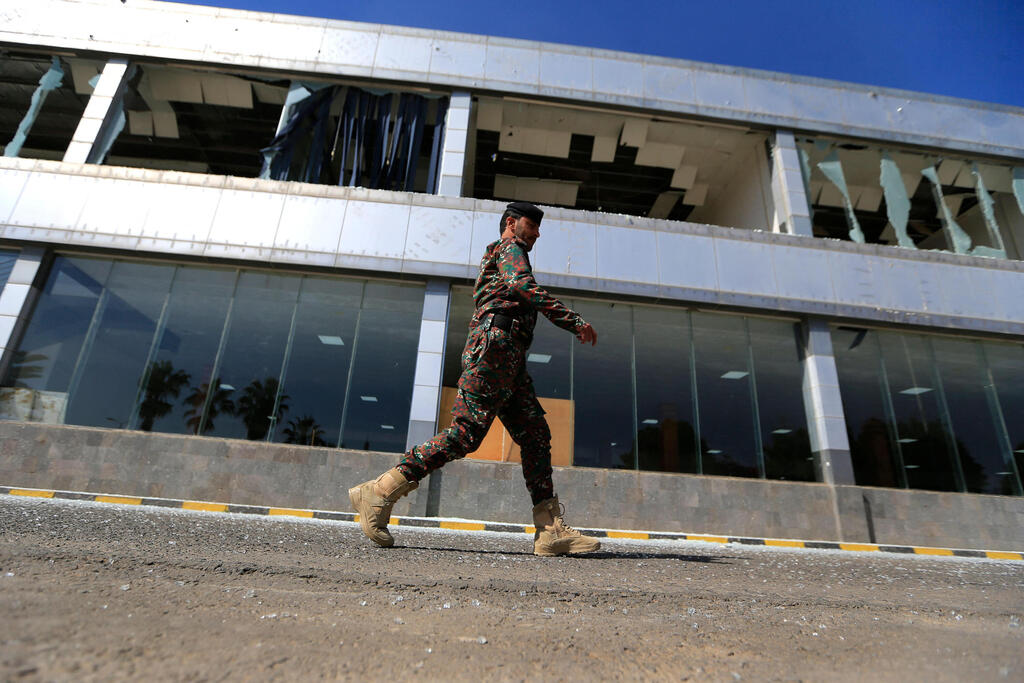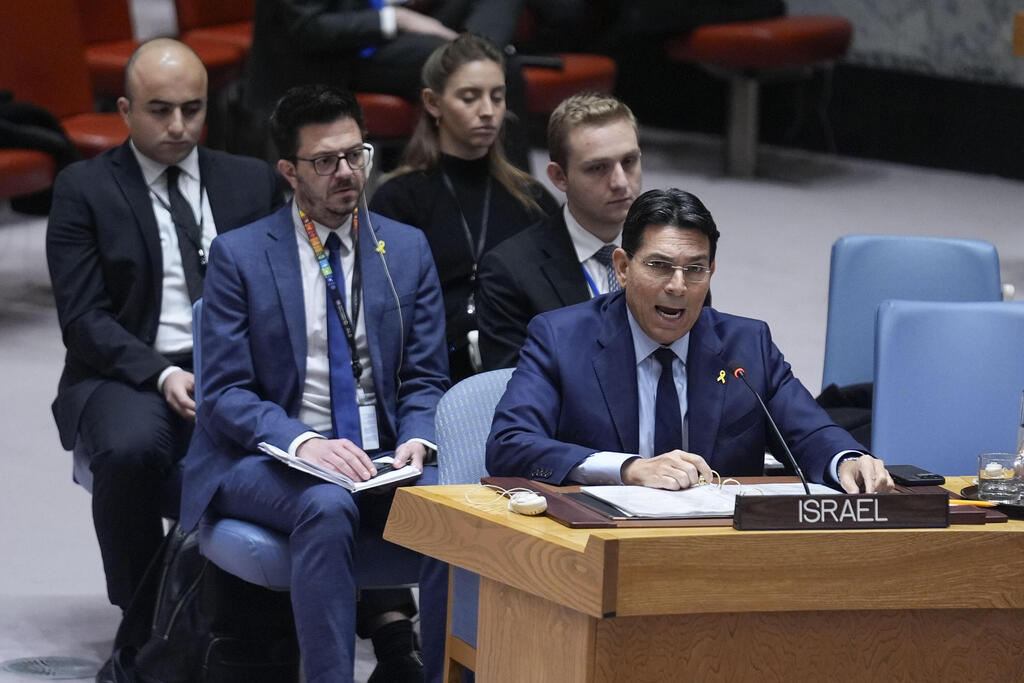Iran’s ambassador to the United Nations, Amir Saeid Iravani, submitted a letter to UN Secretary-General António Guterres and the president of the Security Council this week, rejecting accusations of Iranian involvement in Yemen and accusing Israel, the United States and the United Kingdom of destabilizing the region.
“The unsubstantiated allegations made by the representative of the Israeli regime and supported by its closest ally, the United States, are an obvious attempt to scapegoat Iran to justify their own illegal actions and malicious activities in the region,” Iravani wrote ahead of a Security Council hearing on Yemen's Houthi rebels' recurring attacks on Israel.
“It is not Iran but the belligerent regime of Israel that has relentlessly pursued a policy of provocation and destabilizing activities, which poses a grave threat to peace and security in the region and beyond.”
Iravani denied any violation of arms embargoes or involvement in fueling Yemen’s civil war, saying that Iran has “always adhered to its obligations under international law and the United Nations Charter.”
The ambassador accused Israel of targeting Yemen’s sovereignty and infrastructure, including Sanaa airport and the Hodeidah port, which are critical for humanitarian aid delivery. “These illegal actions, carried out with the direct backing and complicity of the United States and the United Kingdom, constitute egregious violations of the UN Charter and international law, including international humanitarian law,” he said.
Get the Ynetnews app on your smartphone: Google Play: https://bit.ly/4eJ37pE | Apple App Store: https://bit.ly/3ZL7iNv
He further criticized the U.S. and UK for providing “political cover and military support for Israel’s reckless actions,” adding that such complicity “has emboldened Israel to act with impunity, fueling regional conflicts and undermining any prospects for lasting peace in Yemen under UN leadership.”
Iravani reiterated Iran’s longstanding support for a political resolution to the Yemen conflict, calling for a comprehensive ceasefire, inclusive dialogue, and respect for Yemen’s sovereignty. He also rejected claims of Iranian interference in the Red Sea, calling them “baseless fabrications designed to inflame tensions and serve as a pretext for further destabilization of the region by the United States and its allies.”
The ambassador urged the Security Council not to be influenced by “Israel’s propaganda,” which he said aims to distract from “ongoing atrocities and ethnic cleansing” in Gaza. He accused Israel of illegal occupation, aggression and territorial expansion, including “its recent occupation of over 500 square kilometers of Syrian territory and ongoing illegal occupation of the Syrian Golan.”
Iravani concluded by calling on the Security Council to “act decisively to hold the occupying regime of Israel and its enablers accountable for these grave violations of international law,” warning that failure to do so would undermine trust in the UN’s ability to maintain peace and security.
Israeli Ambassador to the United Nations Danny Danon said in response "I’m not surprised the Iranian representative is under pressure after we exposed Iran’s terror machine operating in Yemen. Iran is the last regime that can preach morality—it funds, arms and operates terrorist organizations that ignite the Middle East. We will not be deterred by threats or remain silent in the face of Iranian incitement and lies. While Iran creates chaos and operates terror puppets, we will continue to protect our citizens and confront every threat with determination and strength."
The Houthis consider themselves an integral part of Iran’s so-called “Axis of Resistance,” alongside Hamas and Hezbollah. Their ideology is encapsulated in the slogan on their flag: "Allah is the Greatest, Death to America, Death to Israel, Curse on the Jews and Victory to Islam."
In recent years, Iran has significantly increased its support for the Houthi rebels. While the Houthis previously had a modest arsenal, they now possess cruise missiles, ballistic missiles and long-range drones. Estimates suggest the group has around 20,000 fighters.





